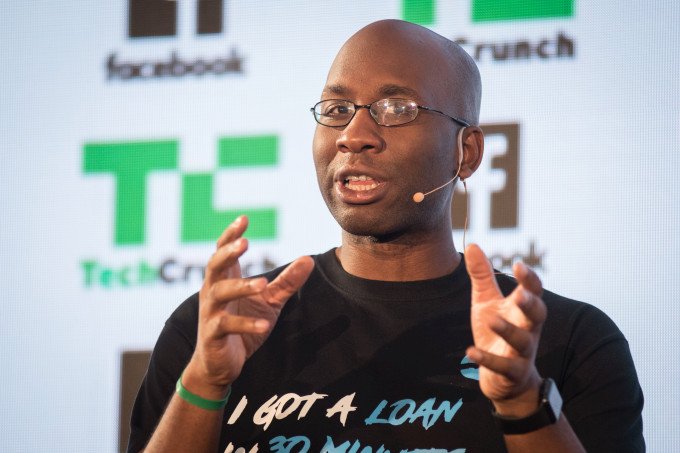Good day,
Oluwanifemi and Emmanuel here
Today we are discussing:
- Kenya’s mobile money regulations
- Kenyan regulator sanctions two telcos over poor service quality
- Carbon financials sneak peek
Kenya’s mobile money regulations
The Central Bank of Kenya is looking to tighten its regulatory reins over digital payments services like mobile money. It has, therefore, released a draft National Payments Strategy for public comments.
Why? Kenya’s mobile money space is, perhaps, one of the biggest success stories across the globe. Since millions move on a daily basis in Kenya, the regulator claims it wants to guard against fraud.
The country’s Treasury Cabinet Secretary is quoted as saying digital payments came with increased risk of fraud and cybercrime and could lead to losses in potential government revenue, customer deposits, and a dip in market confidence.
The background: Supported by some robust regulations and the huge success of Safaricom’s M-Pesa, digital payments in Kenya has been growing in leaps and bounds. The threat of COVID-19 and the waiver on mobile money fees only seems to have increased mobile money transactions.
Between January and November 2019, Kenyans made up to $47 billion worth of mobile money transactions. This feat is all the more impressive considering its population of 56 million.
Fun fact: Safaricom’s M-Pesa controls 98% of Kenya’s mobile money market. Airtel Money and other mobile money providers account for just 1.2%.
Regulation and growth: With such a deepened digital payments ecosystem, a fair question would be, what kind of regulations fostered such immense growth? Well, there has been several.
From the Kenya Electronic Payment and Settlement System (KEPSS), to the NPS ACT of 2011, Kenya has quite a number of regulations that guard its mobile payments space. For the most part, we could deem these regulations successful.
What’s changing? The government wants tighter control over digital payments, giving it the ability to influence factors such as pricing and tariff regulations. In a nutshell, it believes these services should be cheaper and more affordable for customers.
It is also tightening its telecom influence and is trying to push for more competition in the space.
Trouble for Safaricom? This move seems like too much regulatory oversight, considering the space’s recent success. Tighter control on pricing means Kenya’s apex bank can determine how much these companies charge for their services.
Safaricom might have to watch its back, considering that the government already wants M-Pesa split from the Safaricom brand, all in a bid to improve competition. No matter what happens, this space is worth keeping an eye on.
This presents yet another government move to control the country’s financial sector. In other parts of the globe, it can get a lot tougher and more ambitious.
Developing economies and their recurring plan to ban cryptocurrency
Even India is in the process of passing a Bill to ban bitcoin and other private cryptocurrencies, the second time in two years.
Following the ban, the country wants to introduce a framework for an official digital currency — possibly a digital version of the fiat currency — that will be issued by the Reserve Bank of India (RBI). This is supposed to give the impression that the country is not planning to stifle but promote the technology and the uses. Well…
It appears the RBI has been a strong critic of cryptocurrency since it started gaining traction in India. But with this move, is it not defeating the idea of cryptocurrencies given the technology it is built on, blockchain? I mean, with RBI involved, you can’t even keep transactions anonymous much less ascertain of its volatility.
Backstory: In 2018, when RBI tried to ban banks and financial institutions from accepting cryptos — because it knows it would stifle transactions — concerned stakeholders dragged them to court and won, making crypto attain its current legal status in the country. Now, here comes the second blow, this time coming from the table of the Ministry of Finance instead of the central bank.
But, then, there’s the constant call to regulate instead of a ban. How hard is it to regulate these currencies compared to issuing an outright ban? Anyway, if this bill falls through, India is on its way to returning to the status quo.
Further reading: The SEC cryptocurrency statement: What is SEC regulating?
Kenyan regulator sanctions two telcos over poor service quality
What happened? After reviewing 2020’s telcos quality of service, Kenya’s Communications Authority (CA) has served Airtel and Telkom Kenya a non-compliance notice for not meeting the 80% stipulated threshold for call service quality in the country.
Scoring 52% and 73% respectively, CA has mandated the two telcos to improve their services or risk a fine of 0.2% of their revenue — which can be up to Ksh 70 million ($635,497). Meanwhile, market leader, Safaricom scored 92%, escaping this ordeal.
The scores were calculated based on the number of outages and network disruptions recorded for the year ended June 2020. In fact, nine counties had it worse than others as the two telcos scored as low as 20% in those locations.
FYI, this move isn’t unlike the regulator. In 2018, it fined all three operators a total sum of Ksh 311 million ($2.8m) for the same incident that happened between 2015/2016. In 2020, the Commission released a document that will uphold subscribers’ right to compensation after poor service delivery.
They are to be paid or credited an amount equivalent to the time they were without access to voice and SMS services unless the outage is as a result of scheduled maintenance.
To a large extent, it bodes well that subscribers get to have value for what they are paying for. But this would definitely not be getting the same reactions from the telcos.
Wait a minute: Before throwing shades at these telcos, maybe we need to understand the factors that can be responsible for outages and service disruptions. Fair enough, quality of service is largely dependent on location and infrastructure, one or both of which is sometimes beyond the telcos’ control.
For a place like Nigeria with increasing statistics of subscriber complaints reflecting poor services, the government is finding a way with infrastructure sharing and collocation. But this is not even a guarantee.
And what about the location? The other day, I found out that some places in African countries touting to have 5G have not even covered for 4G, and some can hardly support 2G and 3G. So, if these challenges aren’t tackled, telcos can hardly promise an end to terrible customer experiences. While they await a lasting solution to power outages — something Safaricom may have figured out — they should brace themselves for the sanctions.
By the way, this article will help you to better understand my point of view.
Carbon hits $243 million transactions
Nigerian digital bank, Carbon, formerly Paylater, has offered a sneak peek into its financials for the year 2020. This practice, though common in foreign markets, is a rarity in Africa and it has earned the startup some praise.
Chijioke Dozie explained that the company wants to build trust among its clientele and aid its recruitment process with the annual releases of its financials.
The company’ promises that its annual report will come in the second quarter of 2021, but here’s a sneak peek of some key metrics for the year 2020:
- Customer base – 659,000
- Payments processed – ₦96.5 billion ($243 million) up 89% from 2019
- Loans disbursed: ₦25.21 billion ($63.6 million) up 9.1% from 2019
- Investments: ₦13.02 billion ($32.8 million) up 365% from 2019.
A nugget: Carbon has raised $15 million so far, and another huge round could be on the way.
Key observations: In 2019, loan disbursements witnessed a 77% growth from 2018, and 666% from 2017 but that declined to 9% as the company seemingly spread its tentacles to other banking activities.
The company recorded $2.8 billion worth of investments in 2019, but that jumped to $32.5 million.
The naira is not funny: The value of Carbon’s disbursed loans — in dollars — in 2019 was $63.9 million and its 2020 figure is $63.6 million. Nigeria’s free-falling naira has caused a slight decline in dollar value despite a 9.1% increase.
*Please note that the exchange rate used was the value of the naira as of December 31, 2020 — ₦396/$1.
Startup funding
Egyptian logistics startup, Tayary has raised an undisclosed pre-seed fund from a syndicate of angel groups. Involved in this round are AUC Angels, Alex Angels, and Cairo Angels.
The startup, serving B2B and B2C clients for food, groceries and health deliveries has since its launch in 2017 has since included more features into its services. The funding will be deployed towards expansion, increasing employee base and aggressive marketing.
What else we are following
- TikTok users are exposing realities of gig work, and Big Tech can’t stop them
- Scientists have taught spinach to send emails and it could warn us about climate change
- Keep in mind: Register for the Digital Currency Summit with this link.
Have a great day!
Oluwanifemi Kolawole & Emmanuel Paul for Techpoint Africa.









